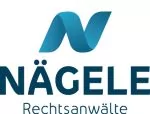On the occasion of the 25th anniversary of Liechtenstein's EEA membership, the Liechtenstein Government submitted its report, which is published every 5 years, on the economic, legal and political effects of membership, to the Parliament.
What is the EEA?
The European Economic Area (EEA), consisting of the 27 EU Member States and the 3 EFTA Members Liechtenstein, Norway and Iceland, is an international agreement to create an in-depth free trade area. Citizens of all EEA states benefit from the "4 fundamental freedoms", namely the free movement of goods, persons, services and capital. Furthermore, Article 4 of the EEA Agreement prohibits any discrimination by reason of nationality.
The agreement does not cover typical agendas of the European Union (EU) such as common policies for commerce, fiscality, agriculture, justice, economic, foreign affairs or security.
Nevertheless, the primary and secondary law of the EU forms the legal basis for the contract-related areas of the agreement. Thus, the Treaty of Rome (EU primary law), which covers the 4 fundamental freedoms, and EU secondary law (EU legal acts; e.g. regulations), to safeguard the 4 fundamental freedoms throughout the EEA directly. These include besides common competition rules, accompanying measures for harmonisation in the areas of consumer protection, environment, statistics and company law.
The main body of the EEA is the EEA Joint Committee. The decisions taken by the representatives of the EU and EFTA states lead to the adoption of EU legal acts. Decisions are taken in accordance with the principle of unanimity. In addition, national approval procedures remain unaffected. The Prince and the Parliament must therefore give their consent in all cases.
Government presents positive results
Despite all the challenges in the implementation of EEA law, such as the adoption of the European financial supervision structure, the Government of Liechtenstein achieves consistently good results. The feedback from all stake holders was positive. Particularly appreciated is the free access to the EU internal market, while at the same time maintaining access to the Swiss market. Criticism was expressed regarding the flood of regulations and the associated problems for companies.
The Government emphasizes in particular the positive economic development, Liechtenstein's more significant role in foreign policy, the deepened relations with the neighbouring countries Austria and Germany, as well as progress in the areas of consumer and worker protection, gender equality, and education.
People show approvement
A representative online survey, carried out for this purpose, showed high approval ratings for the EEA among Liechtenstein citizens. 76% of those questioned have a positive image of EEA membership, while only 5% are critical to membership. The 4 fundamental freedoms are considered a particular achievement. In addition, the overwhelming majority would like to see continuity in European policy and an expansion of relations.
Although the majority of respondents have a positive view of the EU, but there are still major reservations about EU membership. Negative connotations in this context are bureaucracy, lack of border controls and crime.
Originally published by Naegele, May 2020
The content of this article is intended to provide a general guide to the subject matter. Specialist advice should be sought about your specific circumstances.

